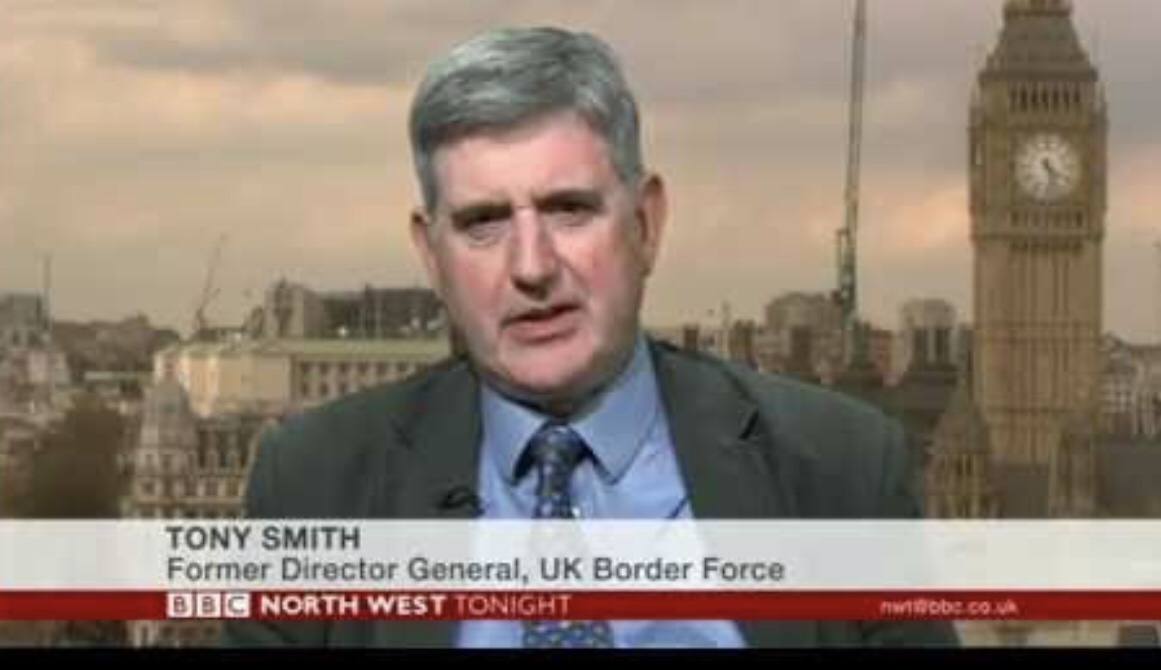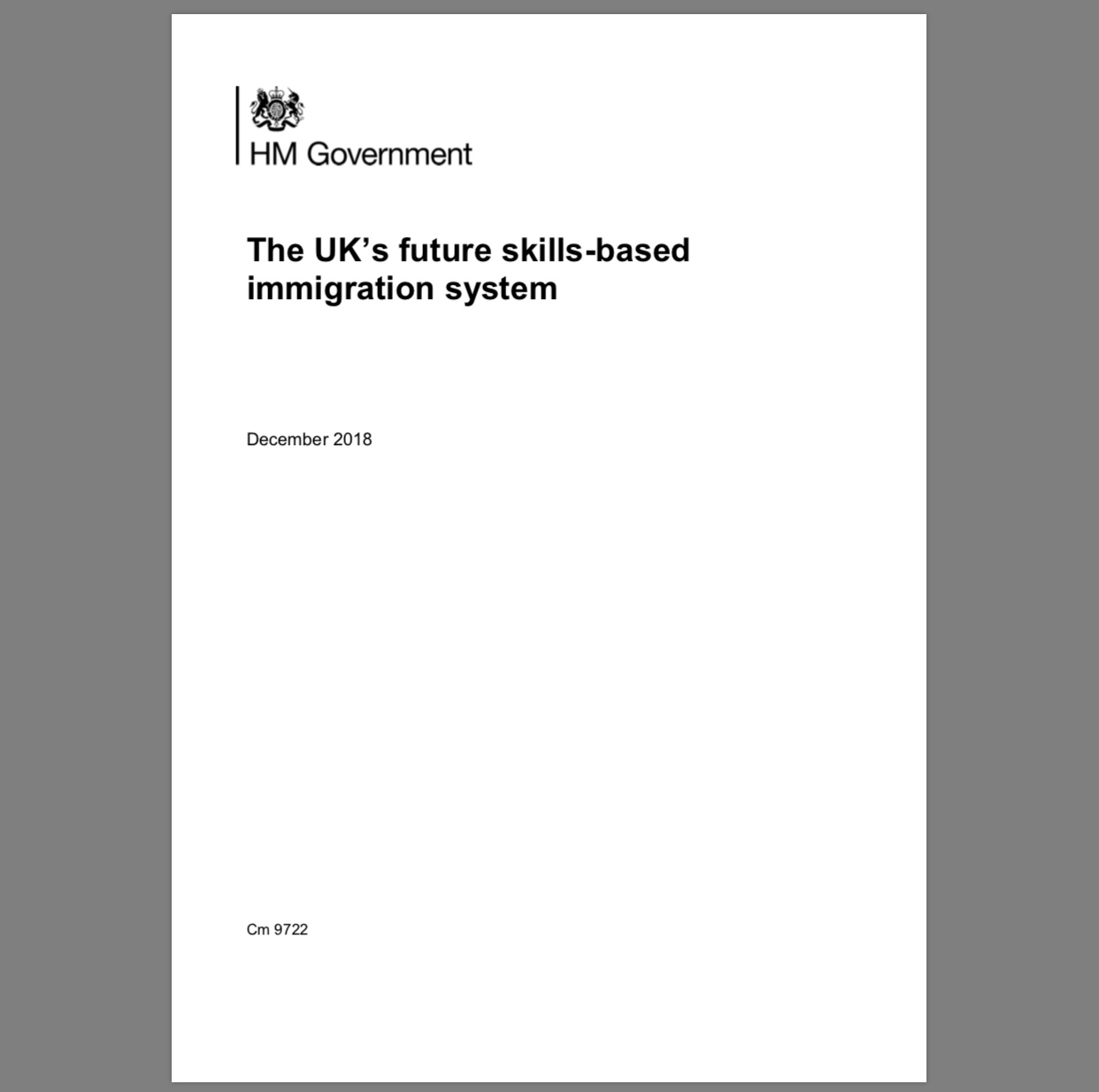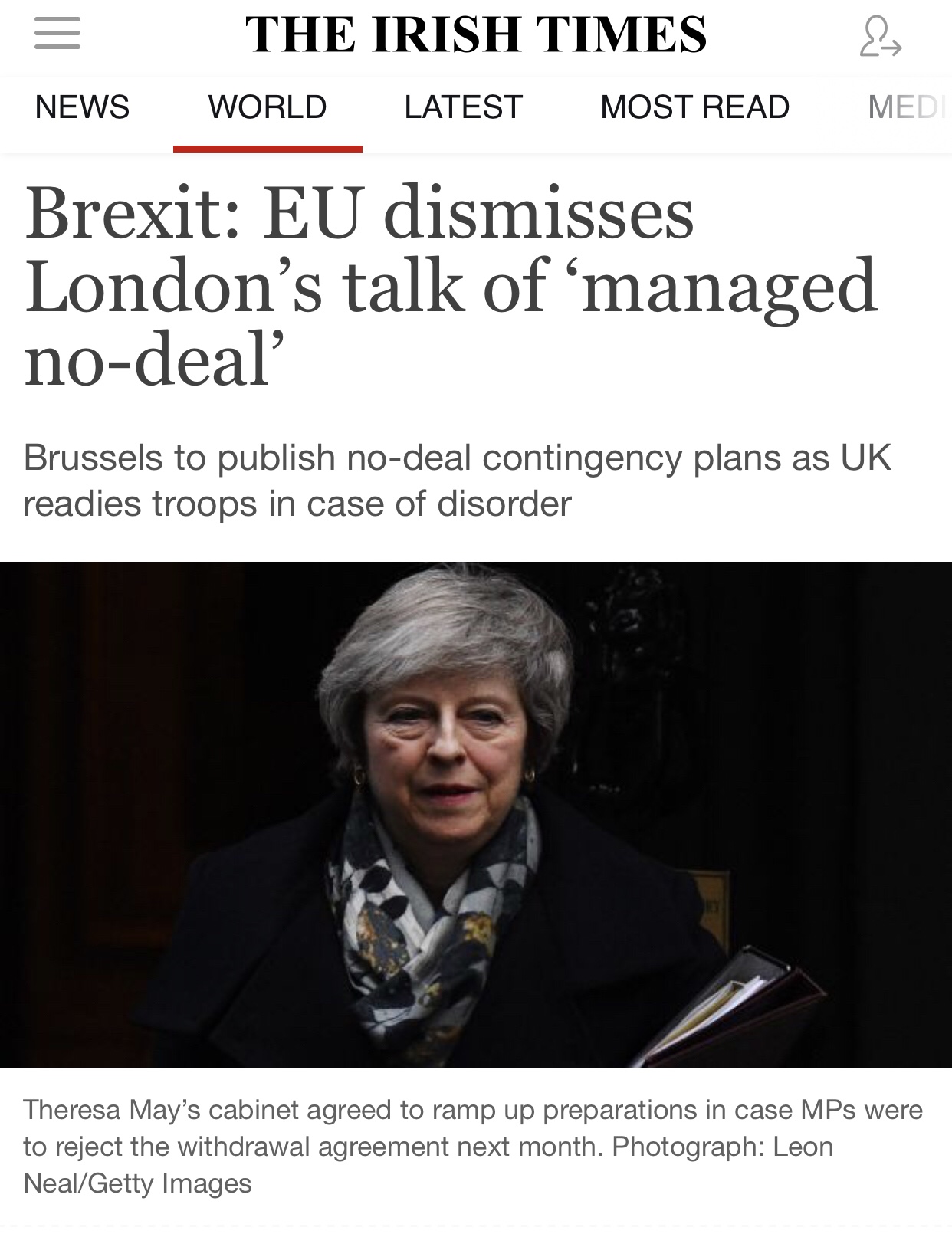Read the words of the leading Border/People Movement expert in the world, my friend & colleague Tony Smith, about the UK Immigration White Paper issued yesterday.

My take on UK Immigration White Paper issued today.
An excellent platform for the UK to deliver a world class UK immigration and border system.
Electronic traveller authority for all non EU low risk visitors will be linked to e gates to enable significantly more passengers to enter via e-gates, not just EU/EEA/Swiss passport holders.
Irish citizens continue to enjoy free movement under CTA and do not need to register to stay in the UK post Brexit.

EU registration scheme now underway will be open to all EU citizens entering and staying in the UK until June 2021 (6 months after the end of the implementation period) – assuming EU withdrawal agreement is signed.
Visas to be digitised with eventual withdrawal of paper vignettes and end to end digital casework system.
Biometric registration for all workers and students including EU cits post Brexit.
New combined skilled / highly skilled migrant worker route (no cap but with skills and financial thresholds); new temporary worker scheme.
Commitment to preserve JXP in France Belgium and Netherlands on reciprocal basis.
Shift continues towards self funding model via industry rather than tax payer funded system.
Lots of hills to climb yet; but let’s hope this will deliver a UK Border fit for the future, at last.
The European Union will on Wednesday publish contingency plans for a no-deal Brexit, a day after Theresa May’s cabinet agreed to ramp up preparations in case MPs were to reject the withdrawal agreement next month.
Ministers agreed to implement no-deal plans “in full”, including reserving ferry space for supplies of food and medicine and keeping 3,500 armed troops in readiness to deal with any disruption.

The EU will make clear that it will not negotiate any “mini-deals” with the UK but will instead take unilateral action to protect European citizens and businesses from the economic impact of a no-deal Brexit. The Bank of England warned last month about the potentially catastrophic impact of Britain leaving without a deal, which could lead to long delays at ports and an abrupt plunge in the value of sterling.
The EU has already outlined minimal plans to allow flights to continue between the UK and EU in the immediate wake of Brexit, although British airlines will not be allowed to fly routes from one European airport to another unless they have a base within the EU. There will be measures to avoid disruption in the financial sector, including allowing some transactions to continue to be cleared in London.
But the EU wants to snuff out speculation in London about a “managed no-deal”, which some Brexiteers have suggested would see Britain paying the EU for a transition period and for sectoral deals to ease the impact of an abrupt Brexit. Ireland will on Thursday publish an updated no-deal plan, which will outline further details of measures at ports and airports and a call to business to escalate its preparations.
Irish Times: No Managed no-deal
Source: Irish Times
UK Government has granted more than £2 billion additional funding across 25 government departments for their Brexit preparations for all scenarios. Funding is for 2019/20 priority areas including borders, trade and security.
The five biggest Brexit preparation allocations confirmed today are received by Home Office (£480m), Defra (£410m), HMRC (£375m), BEIS (£190m) and the Department for International Trade (£128m).
• Home Office will use its funding to increase Border Force capability with hundreds of new officers, continue preparing the EU Settlement Scheme to offer settled status and prepare law enforcement national security preparations.
• In addition to taking back control of our waters, Defra will use its funding to deliver arrangements at the border and beyond to ensure uninterrupted trade in fish and fisheries products, chemicals, and agri-food.
• BEIS will deliver business stability for company law and audit, in addition to developing options for a UK Global Navigation Satellite System.
• HMRC will employ over 3,000 customer service and compliance staff in operational roles to handle increases in customs activity, ensuring trade continues to flow and revenue is protected. HMRC will also use its funding to deliver new technology and IT requirements at the border to ensure trade is as frictionless as possible.
• DIT will use its allocation to securing post-Brexit continuity for around 40 trade agreements covering over 70 countries, accounting for 12% of the UK’s total trade. They will also use their funding for work on future trade agreements around the world.






You must be logged in to post a comment.